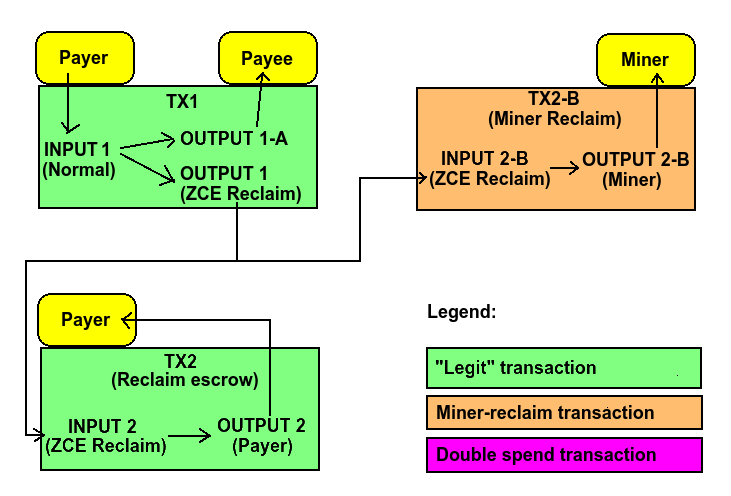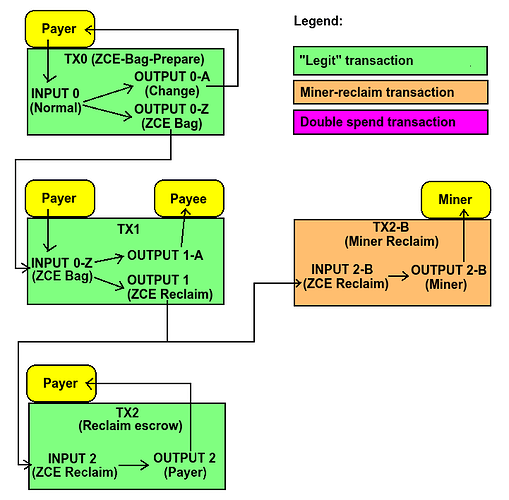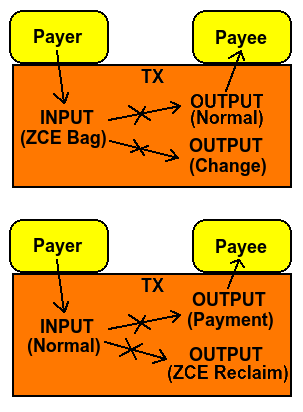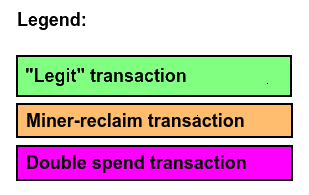As this topic here is thus practically dead, it is fun and probably useful to go over the escrow history and what it ACTUALLY is.
So, back in 2018 we enabled this new opcode op checkdatasig. A couple of months later there was a workshop in Italy (online) where, among others, escrows were proposed as a way to increase the certainty of instant transactions.
Besides the escrow based solution several other solutions were proposed and compared at that workshop. Check the presentations for details.
Based on excellent empirical research presented there, based on good discussions on the pluses and minuses of the various ideas we came to the conclusion that double spend proofs were by far the best solution to increase security of instant transactions.
Nobody has yet presented any evidence that disagrees with that conclusion we reached back in 2018.
The basic conclusion is that in order to have the best security around instant transactions we need the ‘first seen’ rule, as built into full nodes since Satoshi, to remain untouched. They are our firewall. This is our most important defense against double spend attempts.
The only proposal that leaves the first seen rule completely untouched is the double-spend-proof, and as a result of the workshop the dsproof proposal has since been adopted by all full nodes and by various interested parties who wanted their protection. It is live on mainnet. It is supported by middleware. It is used by things like vending machines.
Back to escrows to improve instant transactions:
so, the legendary developer awemany invented the idea based on the then new opcode. But it had the flawed requirement that when a stealing transaction gets seen by miners first, they are not aware of the escrowed one and thus won’t be able to take the money. The obvious solution is to do a replace-by-[something] in the mempool. Very similar to replace-by-fee. Which we know from BTC is a terrible idea. See calin above who repeats this common knowledge. The saboteur on that side is the one that pushed it the hardest. That should tell us something.
We have not seen any rationale that didn’t instantly get refuted why dsproof is actually not serving the people. Or why it would fail in the future. Various reasons have been given, none of them made sense.
The basic innovations on a better or more interesting script compared to the awemany 2018 proposal are all about moving chairs on the deck of the Titanic. None of them cover the basic issue that a miner will only ever see one of the two transactions due to the basic protection of the first seen rule. This is our firewall, it would be insane to break it! And so this is like the chairs on the deck of the Titanic. No changes in the script will remove the underlying iceberg where the miners not getting both transactions which is required to make the scheme work.
So, even if we innovate to version 20 of the unlocking script, this is irrelevant if it is not seen by miners together with the stealing transaction. And they won’t, as long as we don’t punch a hole in the first-seen rule. And we really don’t want to affect that as that is our core protection.
I’m happy we can close this topic as to most the point was clear already in 2018. So this was a huge waste of time. I hope we never see this topic opened again like it actually is a solution to anything.




